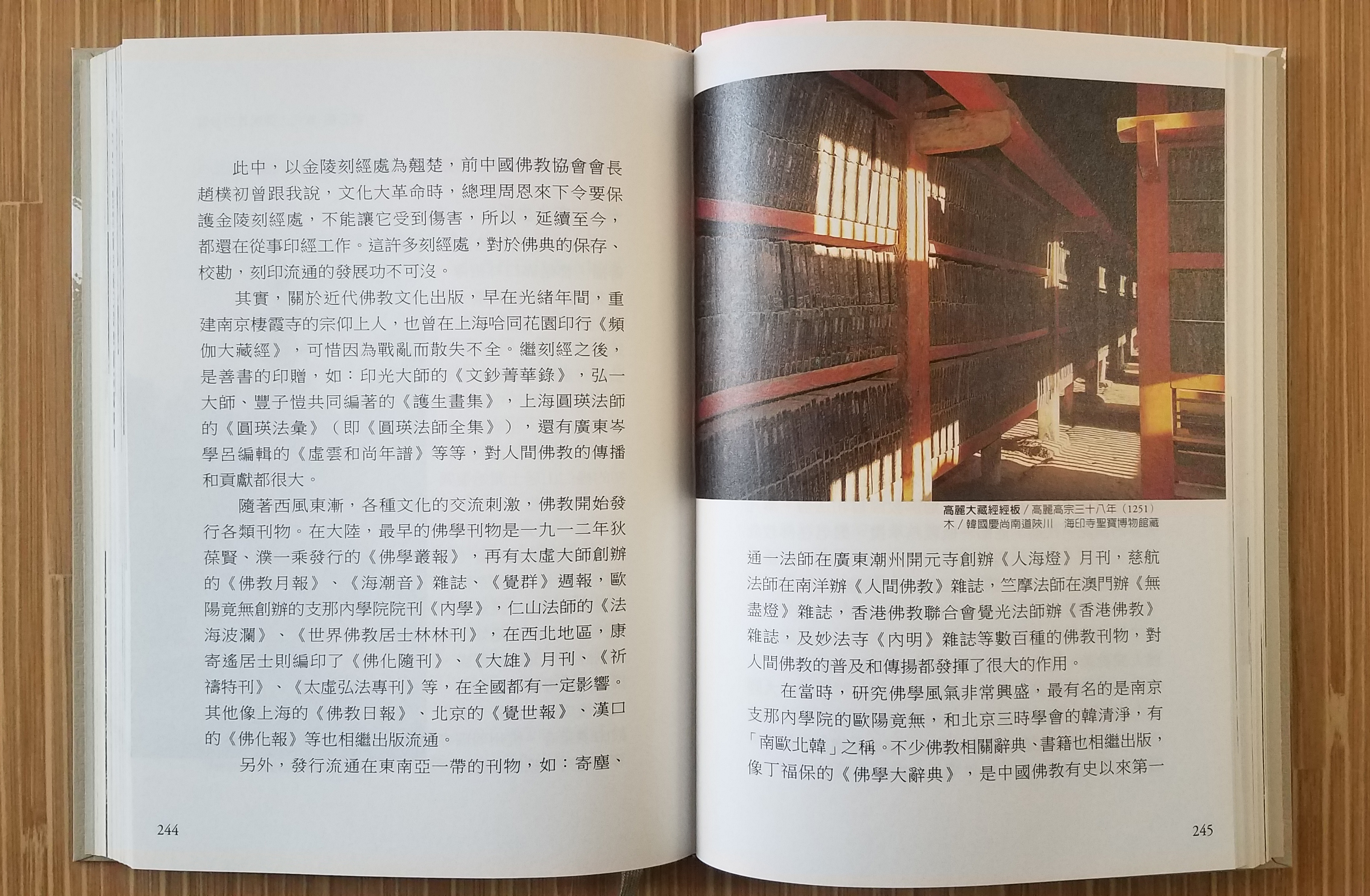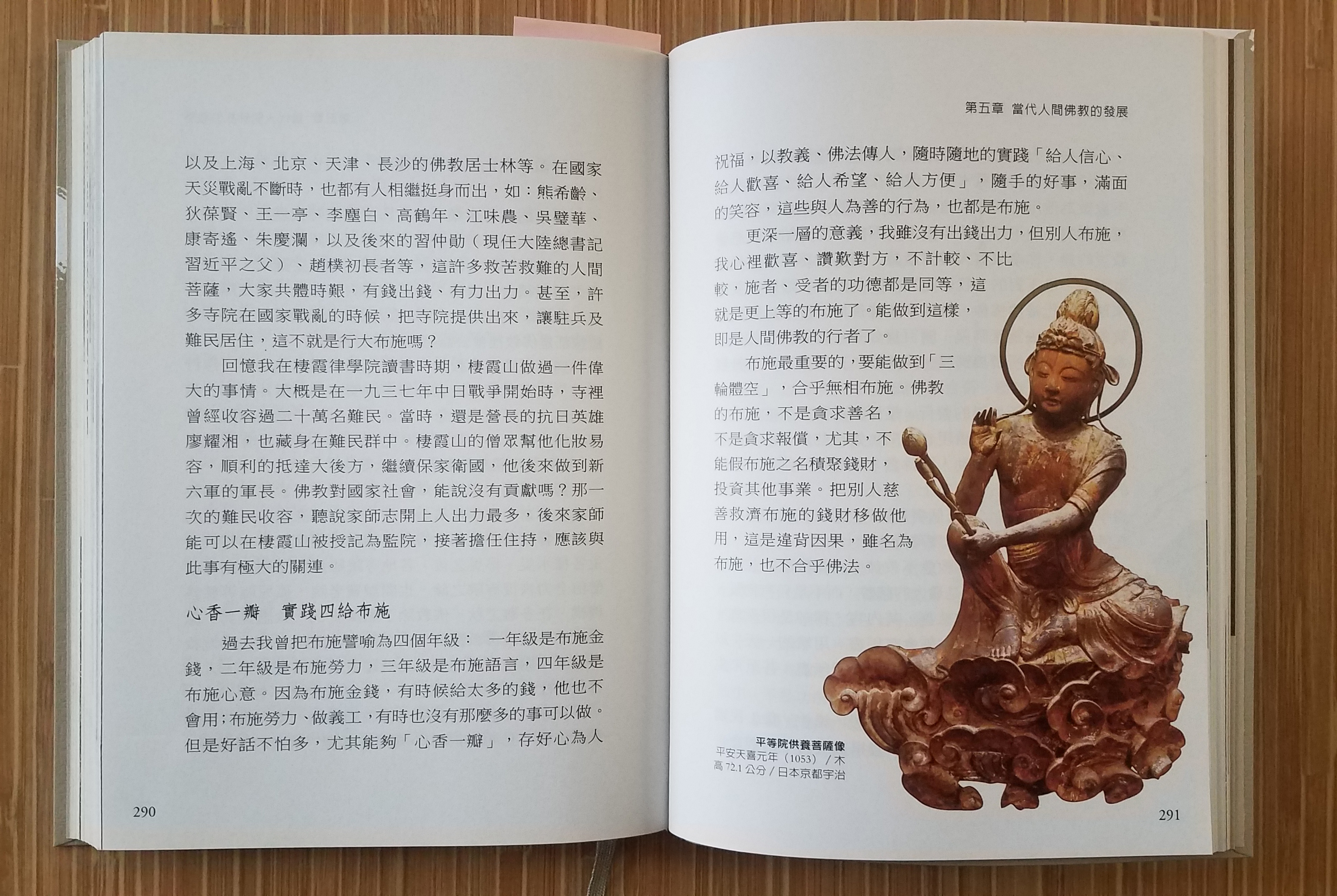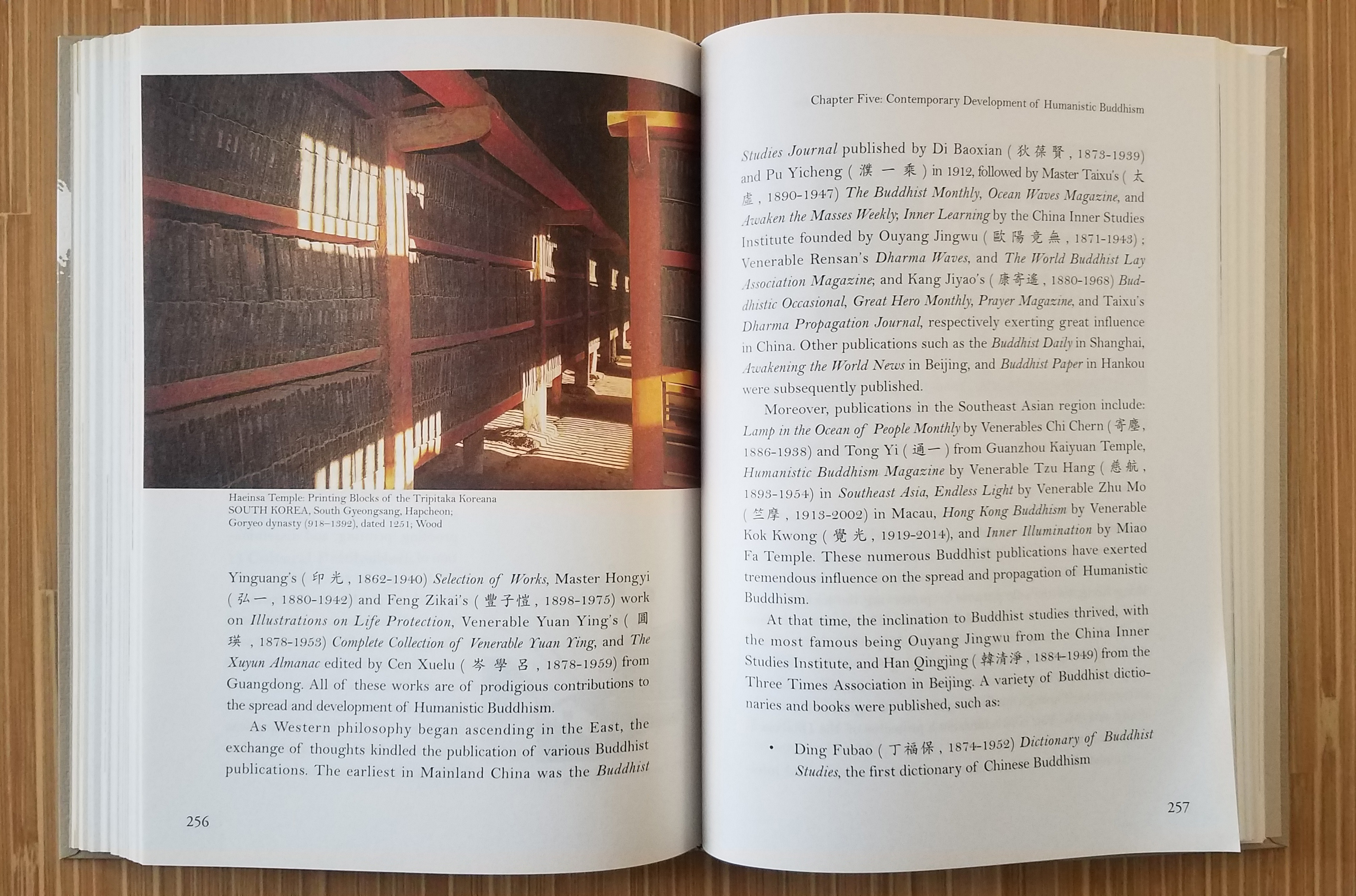DI PINGZI 狄平子
1872-1941
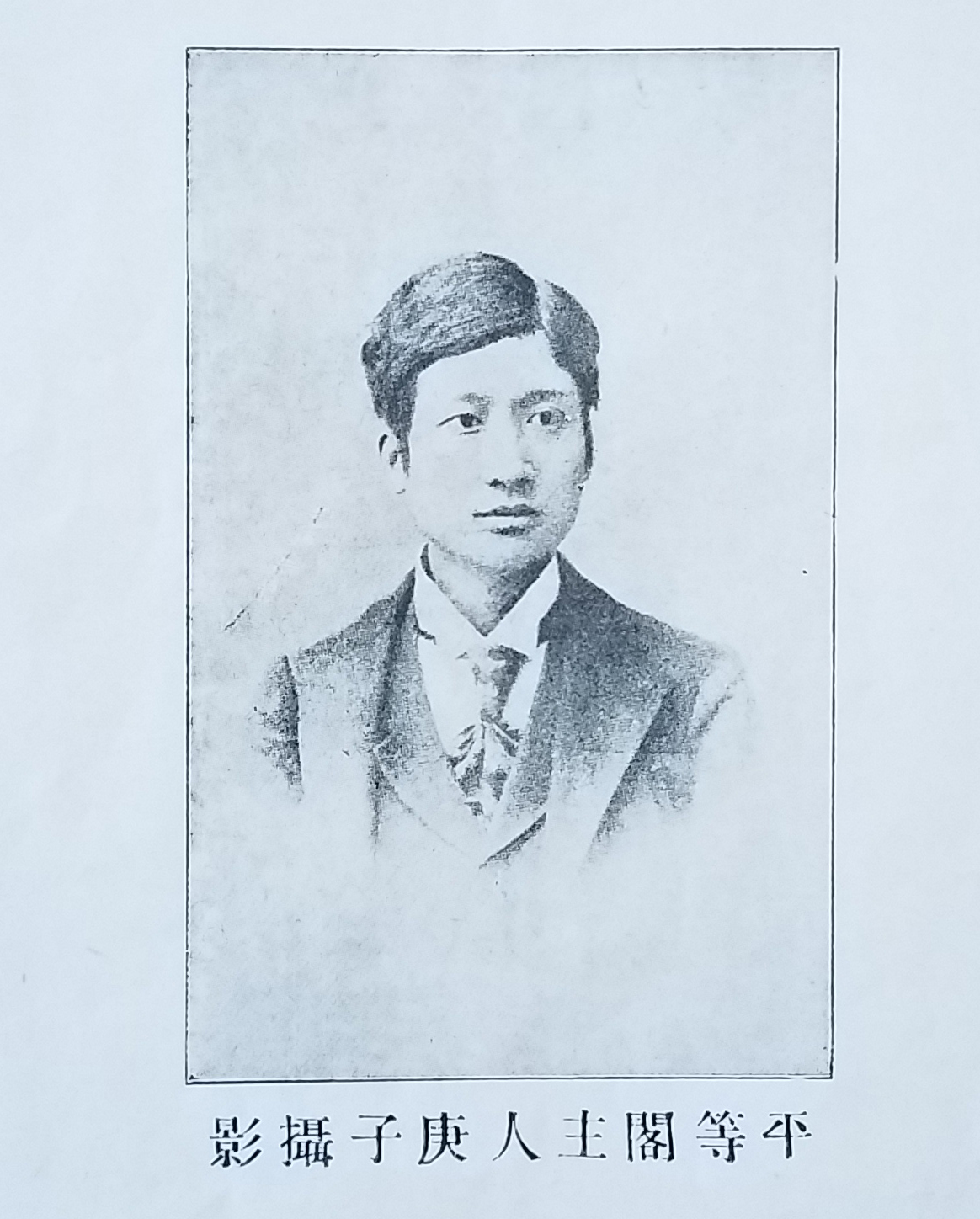
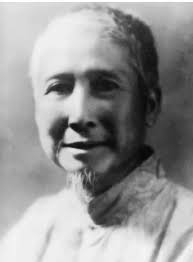
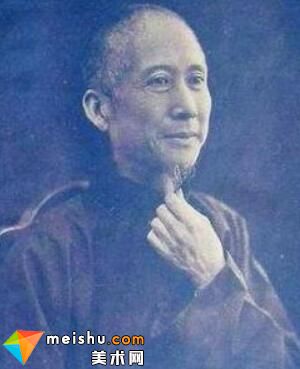
From Liyang, Jiangsu Province, he was known by many names including Di Chuqing, Di Jixian, Chu Qing, Ci Shi, Di Ping, Gao Pingzi, Ping Deng Ge Zhu (the master of equality), Ping Qing Ju Shi (I'm not certain of the exact translation, but it seems to mean a layperson Buddhist), Ya (elegant), Six Roots of Purity, etc. The most used and widely known is Di Pingzi.
He was born to a Shuxiang official. His high ancestor was the first township examiner, and he was a close friend and in-law to the great scholar Wang Menglou; his great master Zeng Bozu was skilled at painting and calligraphy. The famous Zhixian is also a famous collector and calligrapher. Di Pingzi inherited his father's ancestor Yu Xu. He worked in calligraphy and painting, but was better at appreciation, was good at poetry, and was an excellent newspaper publisher.
--Translated from: https://kknews.cc/culture/p8le42.html
He raised people in his early years and later studied in Japan, and was the only disciple of Jiangnan in Kang Youwei. In the 26 years of the Guangxu period of the Qing Dynasty (1900), he participated in the activities of Zhang Caichang, the parliamentary member of the Tang Dynasty, and participated in the campaign of the independent military king. He was a good poet, believed in Buddhism, and published many poems in Qingyi Bao and Xinmin Cong Bao. In the summer of the 30th year of Guangxu (1904), Kang Youwei and Liang Qichao raised funds and founded the Times in Shanghai to reform the newspaper business, claiming to publish the newspaper "not for the reform of public opinion, but for the newspaper that represents public opinion." He was the first to create a four-page format for two-sided printing of modern newspaper layouts; set up a "time review" column, short and timeless, to imitate many daily newspapers. According to the importance of the content of the news, he used different typographic printing. He included world famous books and popular novels. Starting from the spring of Xuantong's third year (1911), a large page of "Funny Times" was also attached to the daily newspaper, with funny talks, jokes, novels, etc., and advertisements on the reverse. Later, due to differences of opinion with Kang and Liang, he assumed the sole proprietorship after the 1911 Revolution.
He published the Beijing-Tianjin edition of the Times and the Beijing Minbao in Beijing, and stopped in less than two years. In the 10th year of the Republic of China (1921), the "Times" was transferred to Huang Bohui and he started to leave the newspaper industry. In addition to the "Times", he also ran a bookstore and published "Fiction Times", "Women's Times" and "Buddhism Series". His works include "Poems of Equality", "Notes of Equality" and so on.
In 1913, Ge Gongzhen and Di Chuqing met, Di Chuqing introduced Ge Gongzhen to the Shanghai world of news and press, a turning point in Ge Gongzhen's life.
--Translated from: https://baike.baidu.com/item/狄楚青/2861165?fromtitle=狄平子&fromid=5849479
Di Pingzi (1874-1941), the name of YinXian, the word Chuqing, the number of equal cabinet master, Shi Trang, the other number equal cabinet master, six clean people, flat love and so on. Born in 1873, he was born in Fuyang, Jiangsu Province. Young growth in Jiangxi, with the father to learn to till, in 1894, the examination of the people. The following year, 24-year-old Di Pingzi gave up the opportunity to continue his science examination, went to Japan for a short trip to study and then to Beijing. When the law changed, Baikang was a teacher, participated in the transformation of the new law, after the failure of exile in Japan. In 1900, he returned to Shanghai to participate in the positive meeting often initiated by Tangcai. He began his newspaper career in Shanghai around 1904, founding newspapers such as the Times, the Novel Times, the Women's Times, the Beijing-Tianjin edition of the Times and the Buddhist Series. During his 17 years in charge of the Times, the business reform, the opening of the domestic newspaper industry a number of innovations, become a on the beach can go hand in hand with the "declaration", "news" of the famous newspaper, also has an important impact on later generations of newspapers. The times' newspaper business reform, the most striking should be its first "time review" this form of commentary. In the Times newspaper, has come out of Chen Jinghan, Bao Tian laugh, history, Go Gongzhen and other well-known newspaper people. In addition to the establishment of publications, Di Pingzi also operates the publishing industry, he founded the Book Bureau, to publish the past generations of calligraphy and painting works, Buddha statues, ancient books as the main business. Di Pingzi spent a lot of energy to collect a large number of ancient calligraphy and painting works and good ancient books for reproduction and publication, so that it can be spread to date, for china's cultural cause has made a great contribution, he himself has been included in the famous painters, book and painting collectors, Buddhist scholars of the forest. Shortly after founding the Times, Di Pingzi opened his own publishing agency, the Book Bureau. The Times Hall is a three-story building, one floor with a book bureau, the second floor is the Times Hall, the third floor is the editorial department and Di Pingzi's apartment. Di Pingzi for the operation of the book bureau poured a lot of effort. At that time, Shanghai was the center of the national printing and publishing industry, the larger book bureau has dozens of, the competition is very fierce, but there is a positive book bureau is quite successful, in addition to responsible for the Times, The Novel Times, Women's Times, Buddhist Series and other publications, will focus on the publication of ancient paintings and ancient novels. There is a positive book bureau or at that time the country's leading book and painting publisher. In the past four decades, there have been dozens of books and paintings published, including the famous 15 editions of "Chinese Famous Paintings", "Mustard Garden Paintings" and so on. In the ancient books of the finishing and publication, there is a positive book bureau also made a great deal of work. Among the many good ancient books published by Di Pingzi, some are still very precious solitary books, which are of great value to the study of ancient literature. One of the most famous is the 80-year-old "Dream of the Red Mansions". Another major play in the publishing work of the Book Bureau is the publication of novels. According to statistics, there are more than 100 kinds of novels published by the Bureau of Books. In 1921, Di Pingzi accumulated into a disease, seriously ill, and finally must not have been operating for 17 years of the Times Hall for 80,000 yuan price plate to Songjiang huang Bohui. In his later years, Di Pingzi, in addition to running a positive book bureau, put more energy into his Buddhist research and promotion work. In 1941, Di Pingzi died at his home in Shanghai at the age of 69. After Di Pingzi's death, the Zhengshu Bureau was closed in 1943. There are "Equality Cabinet Notes", "Equal Cabinet Poems", "The History of Paintings of the Qing Dynasty" and other worlds.
--Translated from: http://memory.library.sh.cn/node/76877
他出生於書香官宦門第,其高祖是鄉試第一解元,與大書家王夢樓是好友兼親家;其曾伯祖精於繪畫,書法酷肖岳丈王夢樓;其父為頗負賢名的知縣,又是大名鼎鼎的收藏家、書法家。狄平子繼承父祖餘緒,工於書畫,長於鑑賞,擅於詩文,更是位出色的報業家、出版家。
https://kknews.cc/culture/p8le42.html
早年中举人,后留学日本,为康有为唯一的江南弟子。清光绪二十六年�年)参加唐才常的张园国会活动,参加自立军勤王之役,担任捐募款及购置军火工作,事败避居日本。他工诗能文,信仰佛学,在《清议报》、《新民丛报》发表诗词多首。光绪三十年(1904年)夏,由康有为、梁启超集资,在沪创办《时报》,锐意革新报纸业务,声称出版该报“非为革新舆论,乃系革新代表舆论之报纸”。首创对开四版两面印刷现代报纸版面格式;设“时评”专栏,短小隽永,为许多日报仿效。根据新闻内容的重要与否,采取不同字号排印。附张刊登世界名著与流行小说。宣统三年(1911年)春开始,还每日随报附送《滑稽时报》一大张,正面有滑稽谈、笑话两句、小说等内容,反面是广告。随后因与康、梁意见分歧,辛亥革命后独资经营。
曾在北京发刊京津版《时报》与上海《民报》,不到两年即停。民国10年(1921年)《时报》转让给黄伯惠经营,始脱离报业。除《时报》外,还办过有正书局,出版《小说时报》、《妇女时报》和《佛学丛报》。著作有《平等阁诗话》、《平等阁笔记》等。
1913年,戈公振与狄楚青相识,狄楚青将戈公振引入上海报界。这是戈公振生命中重要的转折。
https://baike.baidu.com/item/狄楚青/2861165?fromtitle=狄平子&fromid=5849479
狄平子�),名葆贤,字楚青,号平等阁主人、石颠,别号平等阁主、六根清净人、平情居士等�年出生,江苏溧阳人。幼生长江西,随父学耕�年,考中了举人。中举的第二年�岁的狄平子放弃了继续科考的机会,赴日本短暂游学后来到北京。戊戌变法时,拜康有为为师,参加变法维新,失败后流亡日本�年回上海,参与唐才常发起的正气会�年前后在上海创办《时报》从此开始了他的报业生涯,一生创办过《时报》、《小说时报》、《妇女时报》、《时报》京津版和《佛学丛报》等报刊。在他主政《时报》的十七年期间,业务上殊多改革,开启国内报业多项创新之先河,成为一张在上海滩上能与《申报》、《新闻报》并驾齐驱的著名报纸,对后世的报纸也有着重要的影响。《时报》的报纸业务改革中,最为引人注目的应属它首创的“时评”这种评论形式。在《时报》报社中,先后走出了陈景韩、包天笑、史量才、戈公振等著名报人。除了创办刊物之外,狄平子还经营出版业,他所创办的有正书局,以出版历代书画作品、佛像、古籍为主营业务。狄平子花费大里精力收罗了大量的古代书画作品和善本古籍进行复制出版,使之得以流传至今,为我国的文化事业做出了很大的贡献,他本人也因此而列入著名书画家、书画鉴藏家、佛学家之林。在创办《时报》不久,狄平子就开设了自己的出版机构——有正书局。《时报》馆为三层小楼,一层为有正书局、第二层为《时报》馆、三层为编辑部和狄平子的寓所。狄平子为有正书局的经营倾注了很多的心血。当时,上海是全国印刷出版业的中心,规模较大的书局就有几十家,竞争非常激烈,但有正书局却经营得相当成功,除了负责《时报》、《小说时报》、《妇女时报》、《佛学丛报》等刊物的出版发行之外,将出版的重点放在古代书画和古近代小说的印刷出版上。有正书局还是当时国内首屈一指的书画出版商。在有正书局经营的近四十年间,出版的书画集录有几十种之多,其中著名的有十五集版《中国名画》、《芥子园画谱》等。在古代典籍的整理出版上,有正书局也大有作为。在狄平子搜罗出版的不少善本古籍中,有的还是非常珍贵的孤本,对于古代文学研究具有极高的价值。其中最有名的当属八十回戚寥生序本《红楼梦》。有正书局在出版工作上的另一个重头戏就是小说的出版。据统计,有正书局出版的小说数量超过百种�年,狄平子积劳成疾,身患重病,最后不得已将经营了十七年之久《时报》馆以八万元的价格盘给了松江人黄伯惠。晚年的狄平子,除了经营有正书局外,把更多的精力投放在他的佛学研究和推广工作中�年,狄平子病逝在上海家中,享�岁。狄平子去世后,有正书局也�年关闭。有《平等阁笔记》、《平等阁诗话》、《清代画史补录》等行世。
http://memory.library.sh.cn/node/76877
POEMS OF EQUALITY (平等阁诗话): Among my parents' possessions is this aged print of "Poems of Equality." Neatly bound into five small booklets, the paper is thin and starting to show a splotches. My father can't recall how they came to him. Below are some selected photos.
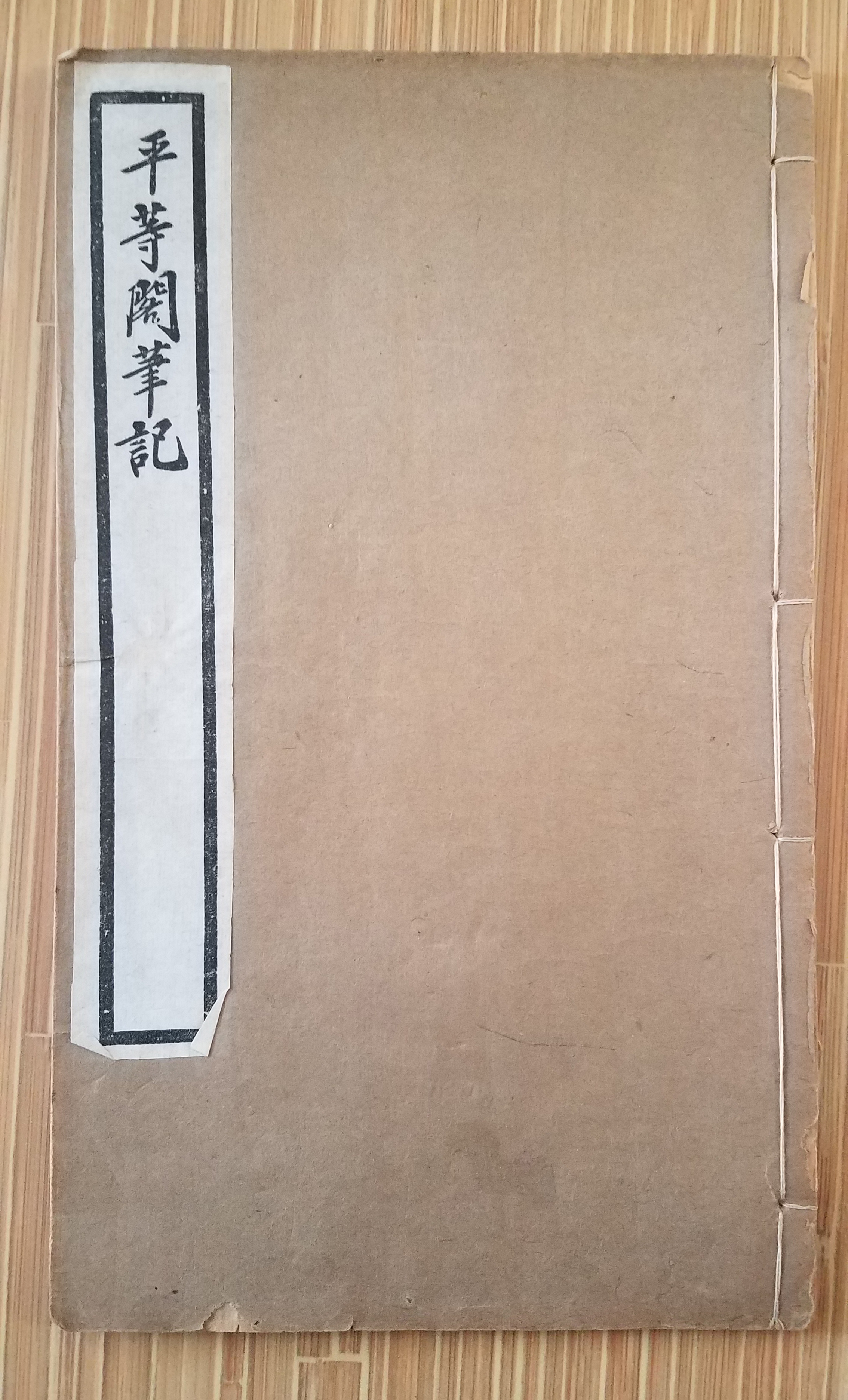
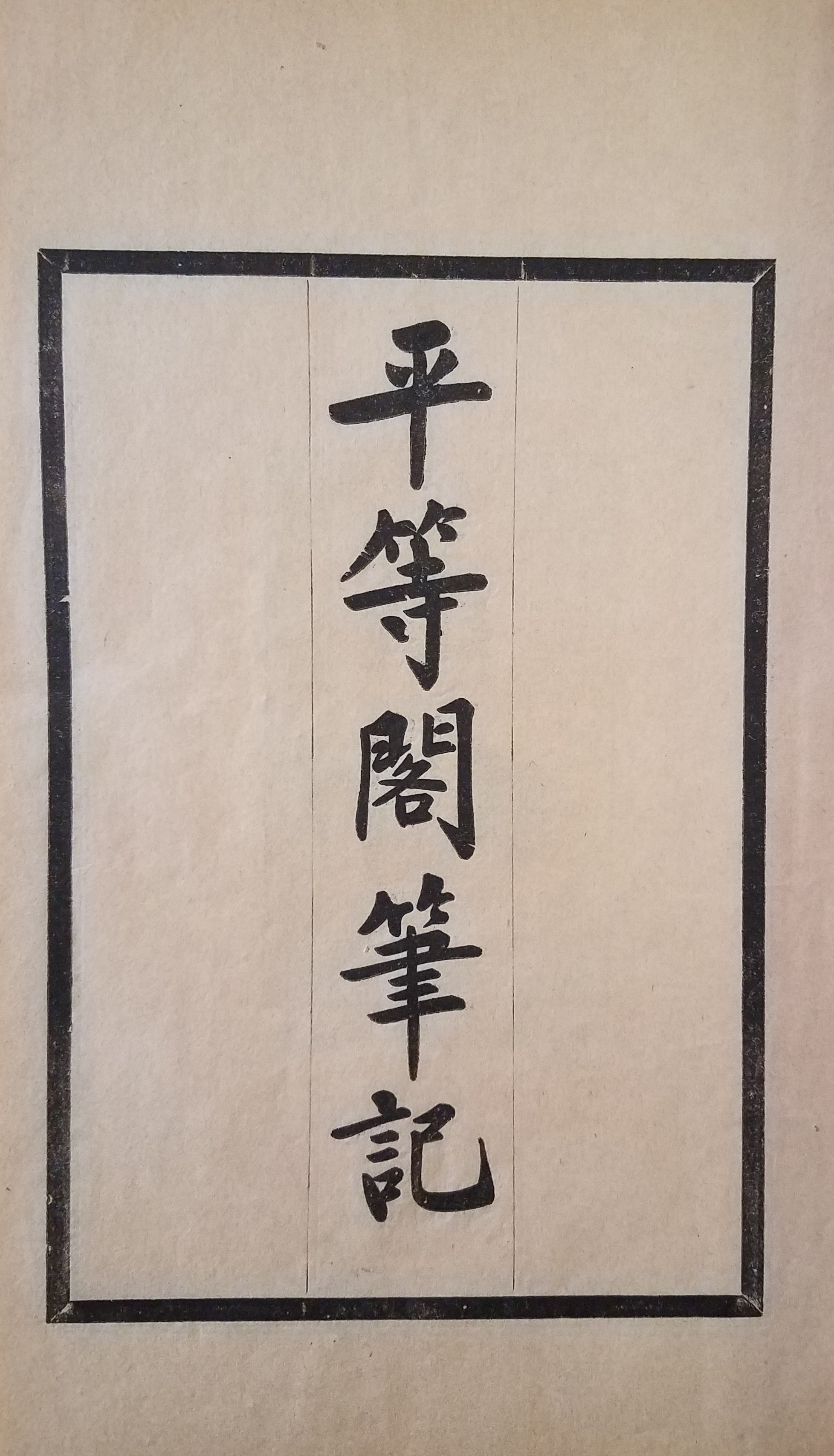
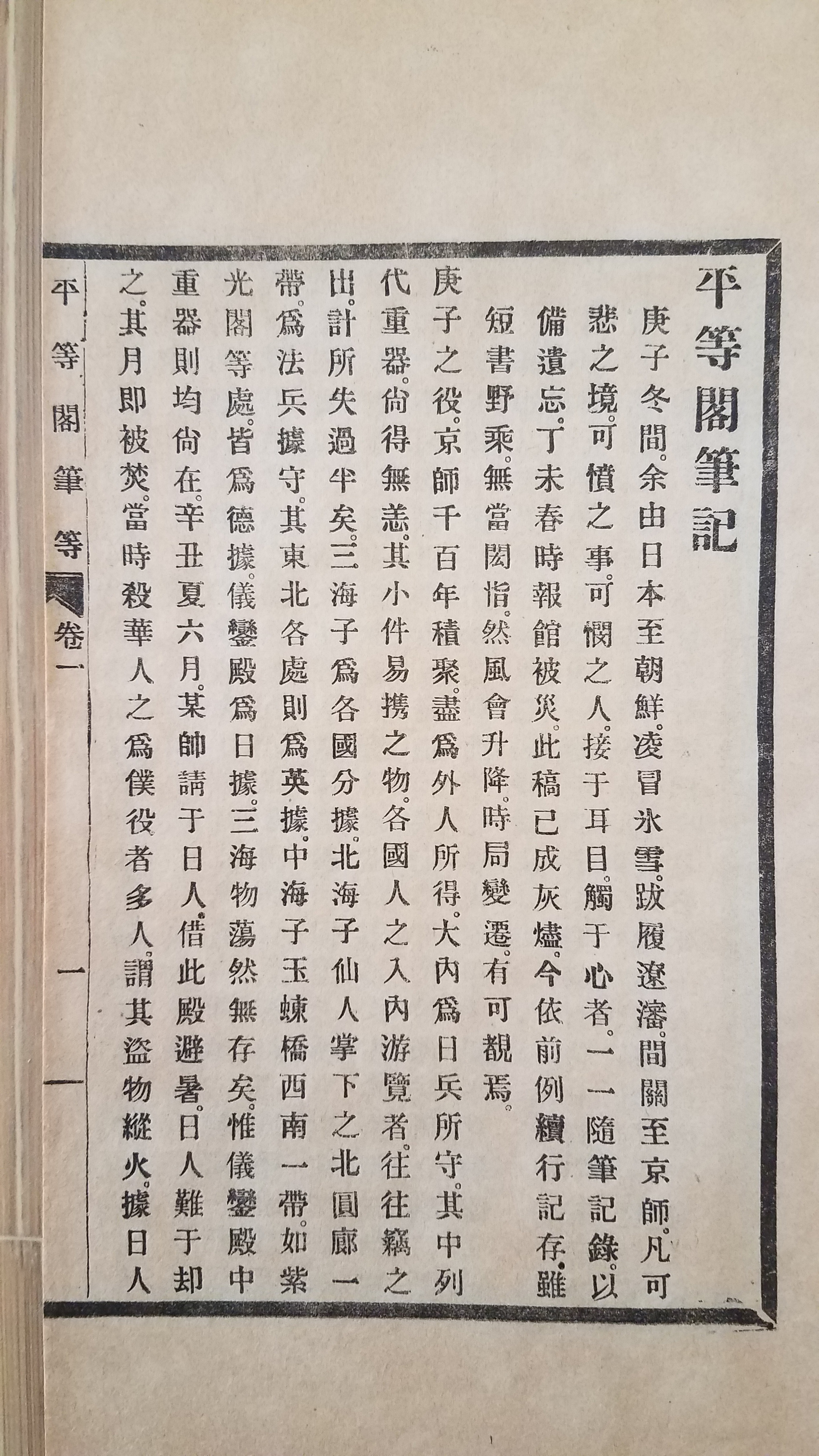
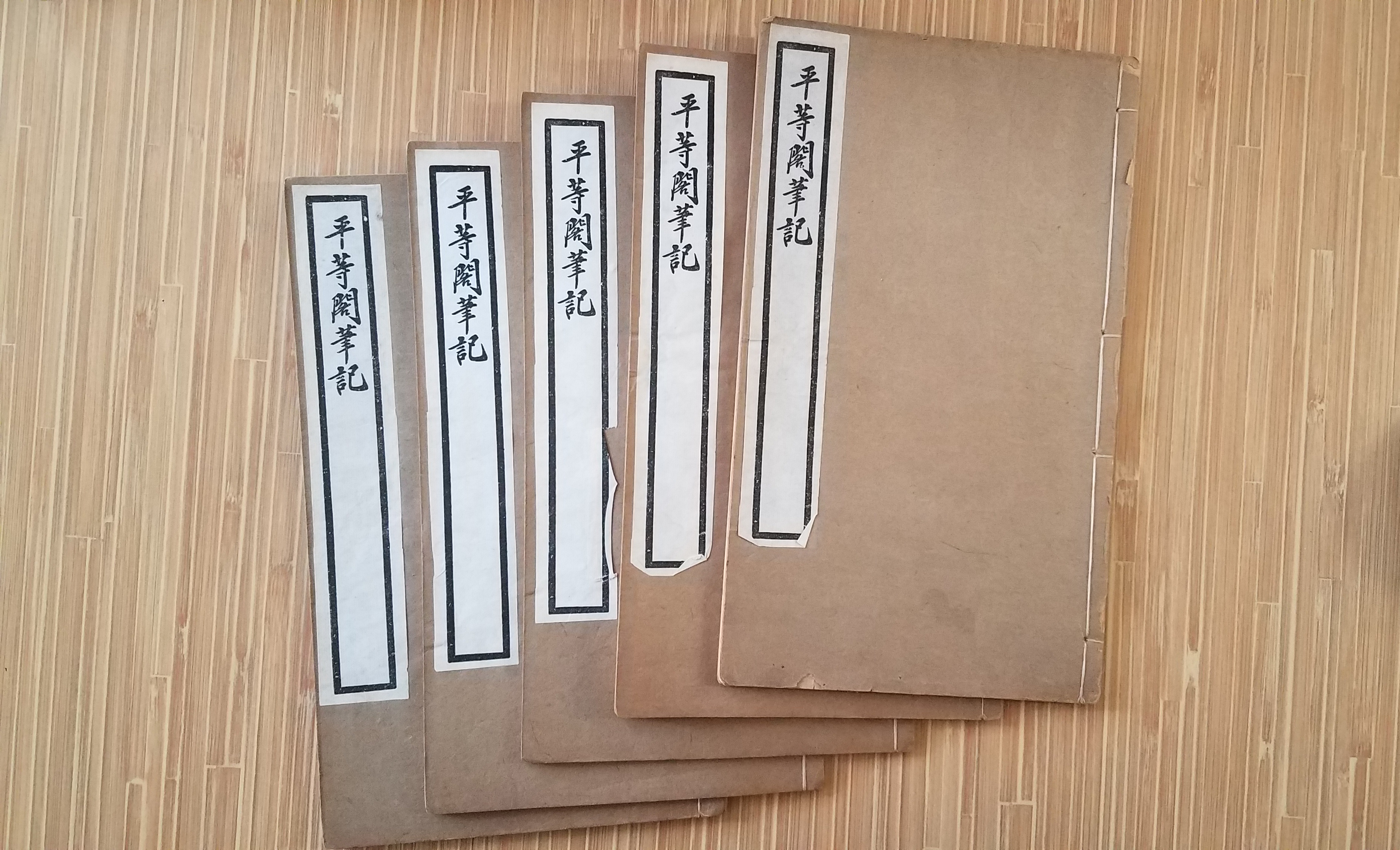
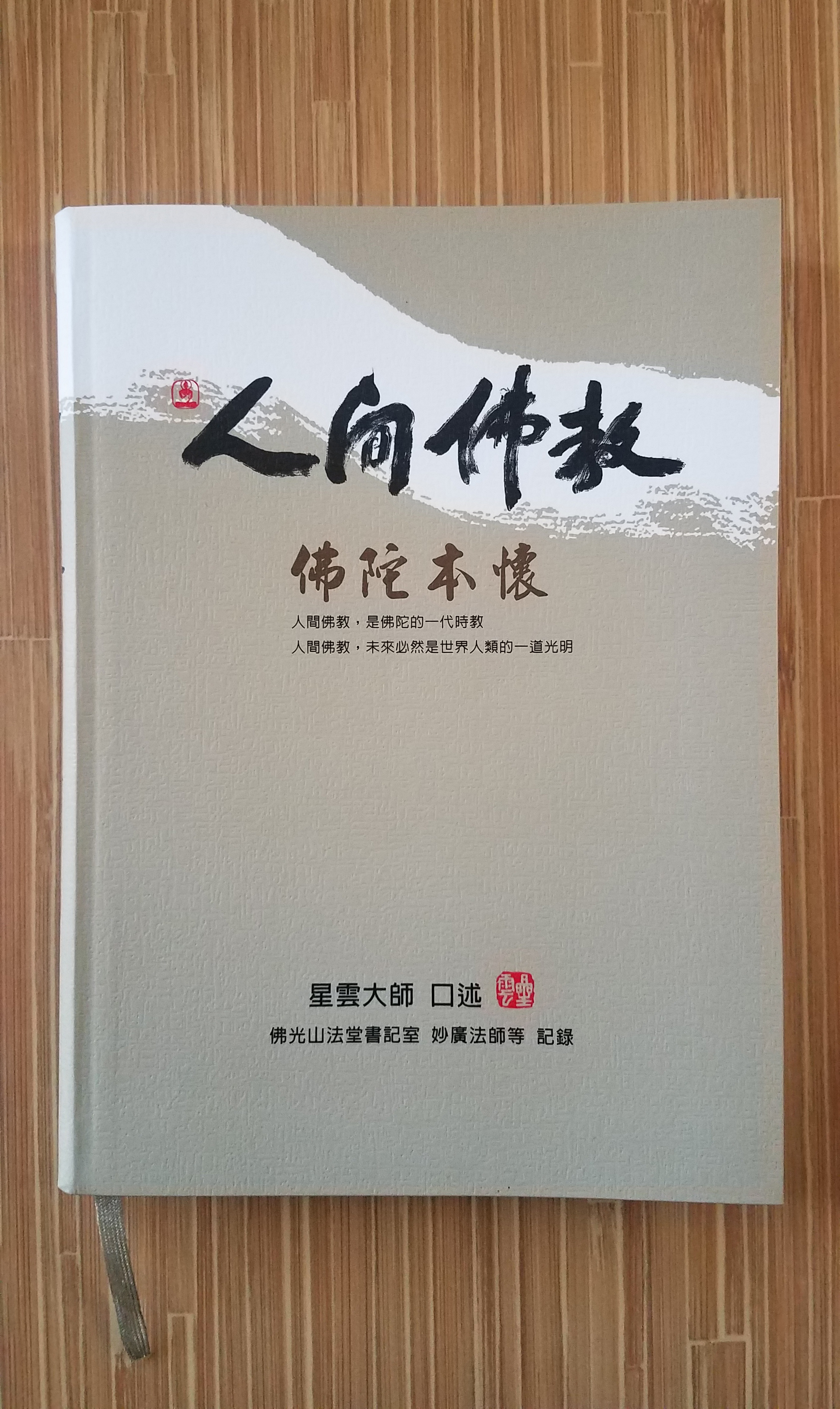
HUMANISTIC BUDDHISM: Over the years, my family has visited temples throughout the Houston area on Taoist and Buddhist holidays. In 2017, I had the honor of working with Chung Mei Temple in a production called Youth Represent the World, which was spearheaded by Kev Jumba. Chung Mei Temple is a beautiful site in Stafford near southwest Houston, and you can learn more about them at http://www.houstonbuddhism.org/.
Chung Mei Temple is part of the Fo Guang Shan Buddhist Society, and the book Humanistic Buddhism is among their published texts. Our family was pleased to see great-grandfather's Buddhist studies publication referenced in the book, using one of his many pen names, Di Baoxian:
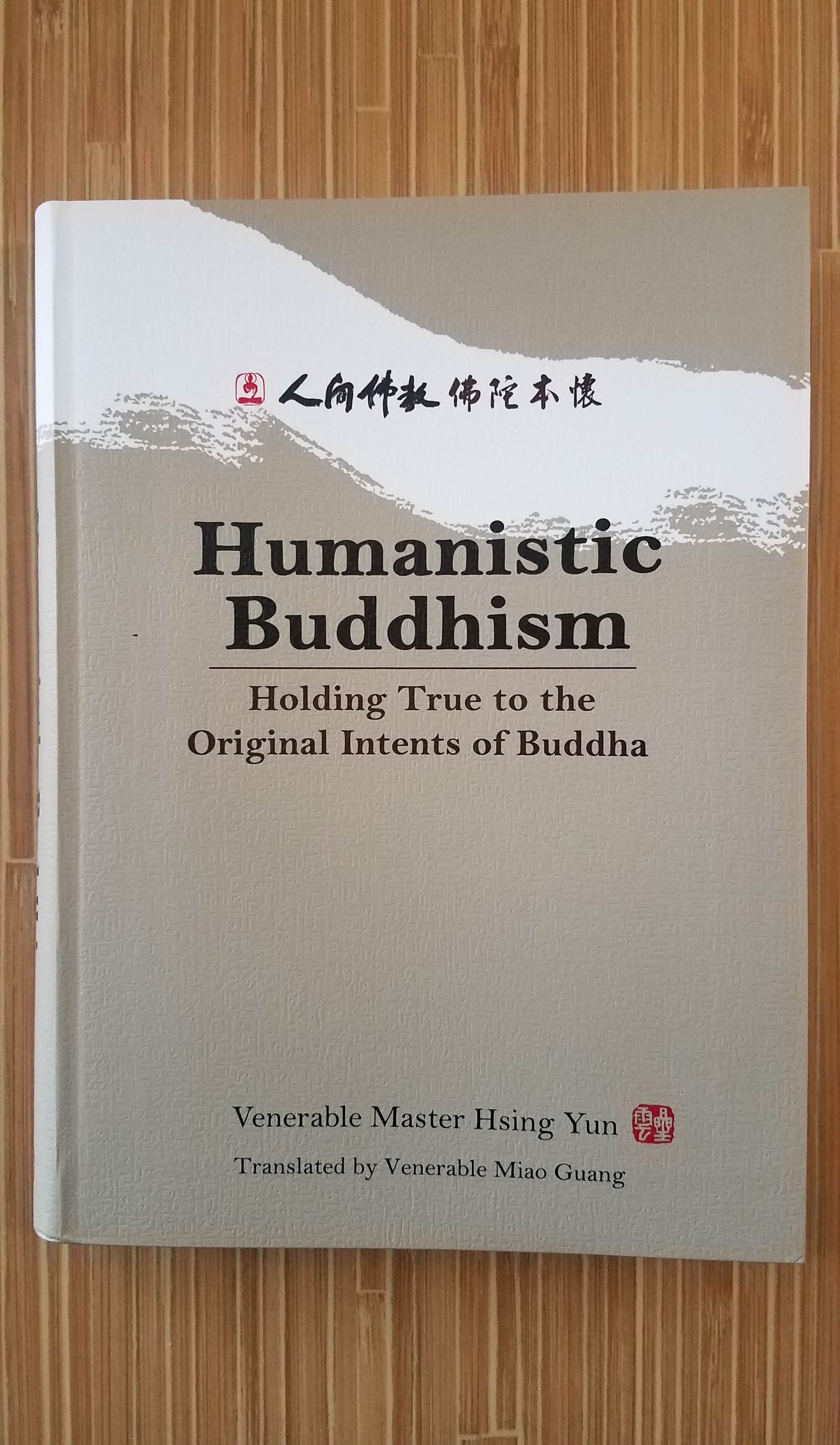
"As Western philosophy began ascending in the East, the exchange of thoughts kindled various Buddhist publications. The earliest in Mainland China was the Buddhist Studies Journal published by Di Baoxian (狄葆賢, 1873-1939) and Pu Yicheng in 1912..."
The book is insightful and well written. If you are interested in reading the full text, Buddha's Light International Association of Western Australia has made a digital version available online here: https://www.bliawa.org.au/single-post/2016/12/31/Humanistic-Buddhism-Holding-True-to-the-Original-Intents-of-Buddha.
